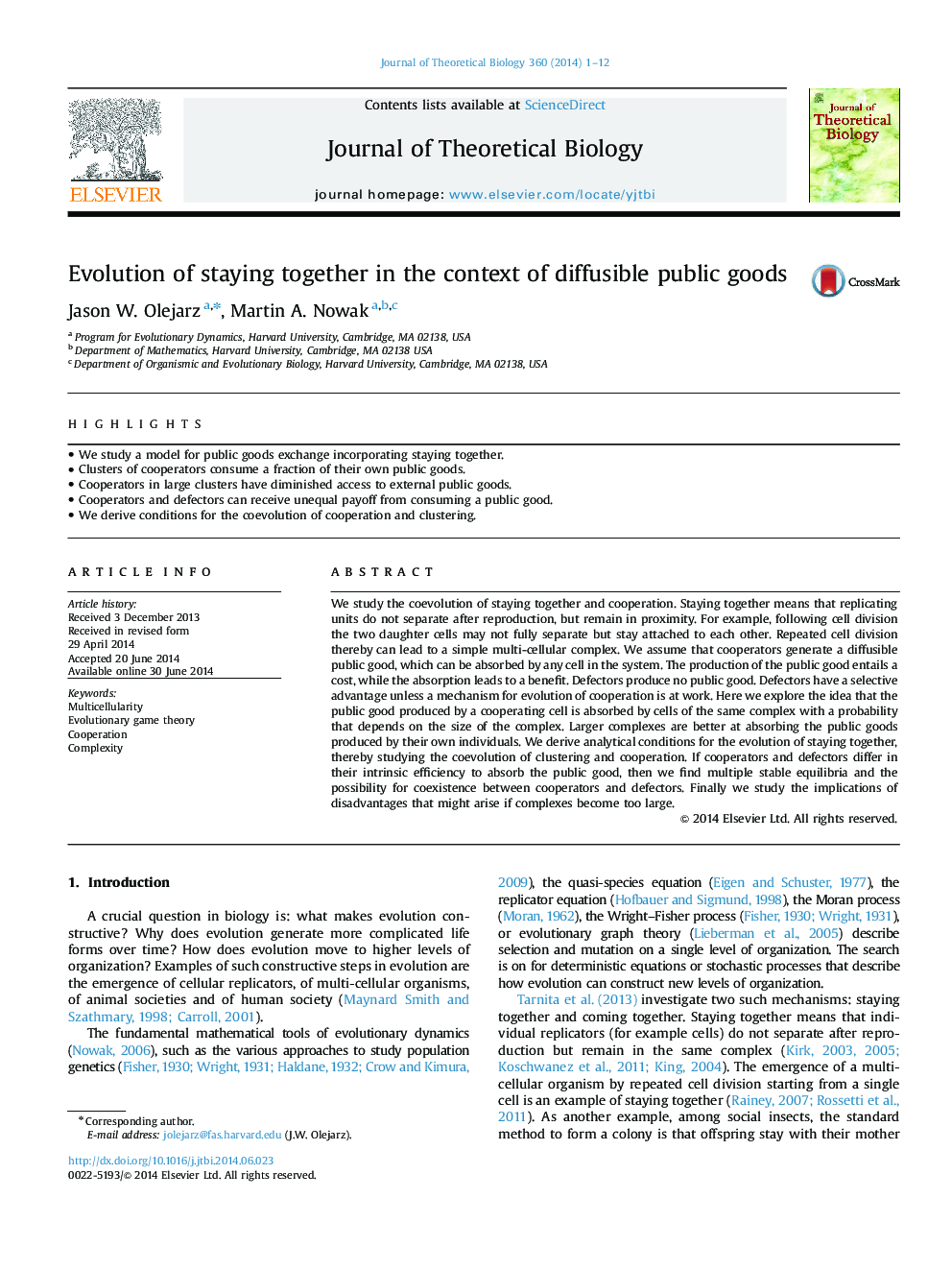| کد مقاله | کد نشریه | سال انتشار | مقاله انگلیسی | نسخه تمام متن |
|---|---|---|---|---|
| 4496094 | 1623850 | 2014 | 12 صفحه PDF | دانلود رایگان |
• We study a model for public goods exchange incorporating staying together.
• Clusters of cooperators consume a fraction of their own public goods.
• Cooperators in large clusters have diminished access to external public goods.
• Cooperators and defectors can receive unequal payoff from consuming a public good.
• We derive conditions for the coevolution of cooperation and clustering.
We study the coevolution of staying together and cooperation. Staying together means that replicating units do not separate after reproduction, but remain in proximity. For example, following cell division the two daughter cells may not fully separate but stay attached to each other. Repeated cell division thereby can lead to a simple multi-cellular complex. We assume that cooperators generate a diffusible public good, which can be absorbed by any cell in the system. The production of the public good entails a cost, while the absorption leads to a benefit. Defectors produce no public good. Defectors have a selective advantage unless a mechanism for evolution of cooperation is at work. Here we explore the idea that the public good produced by a cooperating cell is absorbed by cells of the same complex with a probability that depends on the size of the complex. Larger complexes are better at absorbing the public goods produced by their own individuals. We derive analytical conditions for the evolution of staying together, thereby studying the coevolution of clustering and cooperation. If cooperators and defectors differ in their intrinsic efficiency to absorb the public good, then we find multiple stable equilibria and the possibility for coexistence between cooperators and defectors. Finally we study the implications of disadvantages that might arise if complexes become too large.
Journal: Journal of Theoretical Biology - Volume 360, 7 November 2014, Pages 1–12
